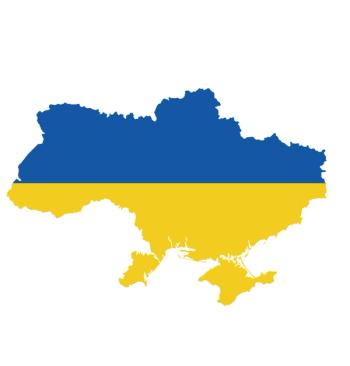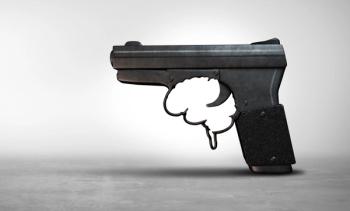
- Psychiatric Times Vol 20 No 10
- Volume 20
- Issue 10
National Trauma: What Are the Consequences of War in the Middle East?
With never-ending, ongoing conflict in the Middle East, trauma issues become of paramount importance. In some ways, trauma may even be considered to be continual. What are the unique challenges of psychological trauma at this level and how are people in this region coping?
A suicide bombing breaches the peace of a Jerusalem night in August and is then followed by weeks of retaliatory strikes aimed at Palestinian targets. It is yet another episode in the back-and-forth violence that typifies this region's intractable conflict and the intergenerational hatreds it produces. Whether the current effort to follow a roadmap to peace will yield an end to the fighting is uncertain. But one thing is clear: the trauma this war inflicts on individuals continues, and its emotional and psychological consequences will affect both Israelis and Palestinians for years to come regardless of what happens politically or diplomatically.
As a result, despite the decades of hostility, there are still things to learn from the Israeli-Palestinian conflict. The consequences of violence, experts say, will affect how these people are able to get along if at all even if a truce evolves and the national interests of all parties are met.
"National trauma is something that has to be defined," Avraham Bleich, M.D., told Psychiatric Times. Bleich is chair of psychiatry at the Tel Aviv University Sackler School of Medicine and chair of the professional steering committee of NATAL-the Israel Trauma Center for Victims of Terror and War. "One of my primary goals is to define this issue."
Over the next several months, he said, researchers will work on polling the country's population to determine "what the public is thinking about national trauma." In addition, a multidisciplinary meeting is planned for early next year that will bring together experts who will consider national trauma from psychological, sociological, philosophical and medical perspectives.
That there is an impact capable of scientific measurement, however, is already apparent. Bleich and two of his collegues published an article in JAMA that measured mental health symptoms and coping mechanisms following exposure to terrorism based on a national telephone sampling (2003;290[5]:612-620). According to Bleich, this is the first study to consider the effects on a nation of prolonged exposure to trauma resulting from terrorism.
Although approximately half the respondents reported direct exposure to terrorism either personally or via a friend or relative, some two-thirds of the participants felt their lives or the lives of loved ones were at risk. The study reported that people experienced an array of stress-related symptoms from trauma, with approximately one-third of them reporting at least one symptom persisting over a month. Although not clinically evaluated for posttraumatic stress disorder, 9.4% of the respondents reported symptoms sufficient to warrant the diagnosis.
Behind those findings, however, Bleich said there is hope. "In spite of individual, social and national damage being done to each side there is a very, very great will to look to the future and to try to empathize with the other side's trauma and to use the trauma as a bridge rather than as a bleeding wall," Bleich said. "The hope for a peaceful, mutual future is a stronger healing force than the scars of the situation. Of course, there will be scars and there will be people preferring to adhere to the wounds and the scars, but hope for a better future is much stronger in my point of view."
For Shafiq Masalha, Ph.D., a senior clinical psychologist and a lecturer at Tel Aviv University and the Hebrew University in Jerusalem, there is reason to be concerned about the impact of prolonged conflict on children. Masalha, who is an advisor to a number of Palestinian mental health care projects, recently reported on a study he conducted that used dream analysis to measure the psychological state of 114 Palestinian children aged 9 and 10 (Palestine-Israel Journal of Politics, Economics and Culture 10[1]:62-70). Of 171 total dreams recalled by the participants, two-thirds were political, and one-third rose to the level of nightmare. Three-quarters of the dreams resulted in a bad ending, and none of them included any friendly contact with Israelis.
Saying that these dream images may bode ill for any future ability to break the deadlock between Israelis and Palestinians, Masalha agreed that the conflict has likely produced long-term effects that deserve further study. "Seventy-nine percent of the thinking [of the Palestinian children studied] is about political violence and 13% see themselves as being killed or sacrificing their lives," Masalha told PT, referring to the proportion of kids who have dreams of being killed or taking their own lives through martyrdom. "They are preoccupied with death rather than with life. So this is one thing that is going on in the minds of the new generation and is behind what we see on the surface."
Masalha said that the violence has restricted both populations, either practically because of the roadblocks and other limitations imposed upon the Palestinian population, or psychologically because of the anxiety induced by the suicide bombings that has caused Israelis to move less freely. As a result, the segregation of populations and the stacking of perceived injustices over time have had their effect and will continue to exert influences over the peacemaking process.
"In order to move people from a psychological state of suspicion, hatred and frustration to a state of trust and liking, it needs a lot of effort," Masalha said. "And these three years [of the intifada] made a very big gap that needs a lot of effort over time."
It is easy to hear the range of emotions that forge that gap in the voice of Zelig Feiner. He is a spokesperson for Identification of Disaster Victims (ZAKA in Hebrew), the group of volunteers who come to each suicide bombing to ensure that Jewish rituals are observed as the dead are collected. In addition to loading bodies into waiting ambulances, workers painstakingly search for human tissue and scour blood from the wreckage, packing their gruesome finds in plastic bags to await burial.
"There are very serious psychological consequences for us," Feiner said in an interview with PT. He has seen dozens of bombings in the years since the current intifada began. "For many weeks and months we have to deal with the psychological reactions of our volunteers. They suffer nightmares and all those images coming back into the mind. There are no rules in these kinds of things. Every person is different." From the Aug. 19 bombing, the toll will reach 22 dead-six of them children. Scores are wounded.
That gap has also developed for Palestinians, who view the years of arrests, the intrusions into their neighborhoods and the death of innocents within their communities as injustices. As such, they view actions by the militant groups as resistance to an occupation, Eyad R. El Sarraj, M.D., told PT. El Sarraj is a psychiatrist and chair of the Gaza Community Health Programme.
"People have a feeling of helplessness and inability to resist. That translates into hopelessness, which leads to depression," said El Sarraj. Those feelings gradually tranform into restlessness and agitation, and those emotions motivate the types of activities that lead to more violence, he added. "These are the cycles we are going through."
Those cycles have caused some to relinquish the clinically accepted PTSD diagnosis in favor of one they've termed continuing traumatic stress disorder or CTSD. "In the United States and the Western countries a person usually gets one traumatic event and later he lives in at least a protected environment," said Mahmud Sehwail, M.D., a consultant psychiatrist and general director of the Palestinian organization Treatment & Rehabilitation Center for Victims of Torture. "We are not living in a protected environment. The situation is unpredictable. You can't even plan for this evening or for tomorrow."
As mental health care workers, Sehwail told PT, their concerns center not only around the impact of current trauma but on the residual consequences that last long into the future and are often invisible. Those long-term results could include social effects that could make it difficult for families to coexist. "It will affect our ability to make peace," he said.
For Israelis, the ongoing terrorist activities affect communities throughout the country in similar ways, regardless of an individual's actual exposure to violence. Arieh Y. Shalev, M.D., a professor of psychiatry and chair of the department of psychiatry at Hadassah-Hebrew University Medical Centers in Jerusalem, told PT that his research revealed that rates of PTSD or its symptoms did not vary significantly between individuals polled in a city close to the violence versus one more removed from the conflict. That result was a surprise, Shalev said, because it seems to contradict literature that focuses on proximity to the traumatic event as a criterion and adds substance to the concept of indirect trauma created by media or word-of-mouth descriptions of violent events.
Despite the effects of terrorism and violence on Israeli and Palestinian societies, Shalev believes there's still a chance for resolution. "There are constraints here that you haven't seen in other national conflicts. Regardless of the trauma involved, there are constraints that keep this conflict more controlled. For some good reason the amount of hate and rage is still counterbalanced by what is done and not done in terms of waging war," he said.
He conceded things could change in a moment. "In a general sense what we're seeing now is that in the [Israeli] population, paradoxically, the more stress there is the more people endorse the likelihood of a Palestinian state," Shalev said. "It is a very fluid thing."
Articles in this issue
over 22 years ago
Research Fails to Link Talk Therapy With Heart Attack Survivalover 22 years ago
Risperidone May Lower Risk of Fallsover 22 years ago
Genetic Components of Depression Identifiedover 22 years ago
Expressions of Social Anxiety in Asian-Americansover 22 years ago
Cultural Psychiatric Services: Past, Present and Futureover 22 years ago
Trauma and Violence in Childhood: A U.S. Perspectiveover 22 years ago
Hispanics and Psychiatric Medications: An Overviewover 22 years ago
Are Assessment and Treatment Influenced by Ethnicity and Gender?over 22 years ago
Cognitive Therapy's Faulty SchemaNewsletter
Receive trusted psychiatric news, expert analysis, and clinical insights — subscribe today to support your practice and your patients.







